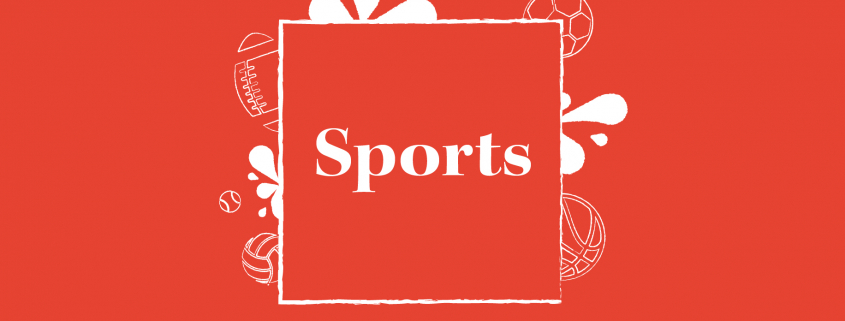Spring Swell: ‘If you don’t live here, don’t surf here’ and other coronavirus considerations

It seemed like a cold day in hell. But actually, it was warm, sunny and in a different h-place: Huntington Beach, Calif. The first day of May brought Trump-flag-waving, “freedom is essential”-poster-holding anti-maskers from all stretches of Orange and Los Angeles counties to protest California’s stay at home order on Huntington Beach’s Main Street.
More than a thousand mostly white, conservative people decided that after a month and a half of coronavirus restrictions (remember way back when?) that it was time for things to end. One attendee spoke with the LAist and summed up the protestors’ purpose quite well:
“Well, because I believe that a lot of people had preexisting conditions that they would have died anyway,” Luke Czaplinski told the LAist. “And this was a little bit a sprinkle of some kind of a sickness that maybe helped them die faster. But a lot of people that were going to die anyway ended up dying.”
It turns my stomach to read that now. Beyond the political makeup of the city, Huntington Beach is also a mecca for surfing in California. It frequently hosts the U.S. Open of Surfing and is home to surfing greats like Kanoa Igarashi. The combination of beach lovers and Gov. Gavin Newsom haters presaged a likely public health disaster that brought a surge of coronavirus restrictions down on all Orange County cities.
The weekend of April 25-27 brought thousands of people to the county’s beaches with perfect heatwave conditions and the ansty haste to get out of the house after over a month of some of the strictest lockdown rules. The showing was almost flagrant, and Newsom acted quickly to shut it down further.
At that point, the governor allowed the counties to decide what to enforce in terms of park and beach closures. In Southern California, Orange County was the only one that allowed its beaches to stay open, until a statewide memo ordered the shutdown of all of these facilities by May 1.
Newsom wasn’t afraid to point fingers, reminiscent of the “this is who ruined it for everyone else” mantra you learn early in preschool. After seeing the beachgoers refuse to wear masks or social distance, he made it clear that at that point in time, the situation was too tenuous to brush restrictions off like you would the sand on your feet.
“This virus doesn’t go home because it’s a beautiful, sunny day along our coast,” Newsom said in a news briefing covered by SURFER Magazine. “We can’t see the images like we saw, particularly on Saturday in Newport Beach and elsewhere.”
Closures of beaches in the early months of the pandemic also meant beachgoers were barred from activities such as swimming, boogie boarding and surfing. At my home break in Manhattan Beach, an Instagram story of a police truck warning of surfers’ potential arrests went viral, with one being fined $1,000 (the irony of the police officers in most of these reports not wearing masks is not lost on me).
Despite engendering some of the greatest headlines and merch, including a Mercury News crime report titled “California surfer in handcuffs after enjoying empty, epic waves” and “Newsom Don’t Surf” shirts for any occasion, many people complied with the orders because it was, and still is, the right thing to do to prevent further devastation in a pandemic.
But now a new sort of responsibility has fallen on surfers and beachgoers of California and beyond. What are they doing now that a stay at home order is mistakenly lifted while the case numbers keep surging?
SURFER’s Zander Morton delivered some of the best editorial I’ve seen from the pandemic era, writing about how locals in Australia and in Santa Cruz, Calif. were urging people from out of town to stay away from their beaches. In fact, Orange County residents blamed out-of-towners for the beaches getting shut down in a marvelous display of that one Spider-Man-pointing-fingers meme.
Some call the return to localism dangerous and the use of the coronavirus to defend it irresponsible. But besides this messaging, what does it take for people to stay out of cities and breaks that are experiencing some of the worst of the pandemic’s effects?
It comes down to personal responsibility and empathy— which may or may not still exist— to decide that going down South, over to Hawai’i or out of the country to Bali is something that can wait until after the pandemic ends (whether it is a good choice at all is a topic for another column).
And this is regardless of how much PPE you wear, how much you’re social distancing or how many negative tests you get. With the absence of clear coronavirus guidance from pretty much everyone and many of the disease’s various facets still to be revealed in terms of its ability to spread and our ability to develop immunity, it’s better to be safe. It’s more respectful to the people, the land and the cooperative spirit of surfing as well.
Lauren Mattice is a senior writing about surfing. She is also the digital managing editor at the Daily Trojan. Her column, “Spring Swell,” runs every other Monday.

